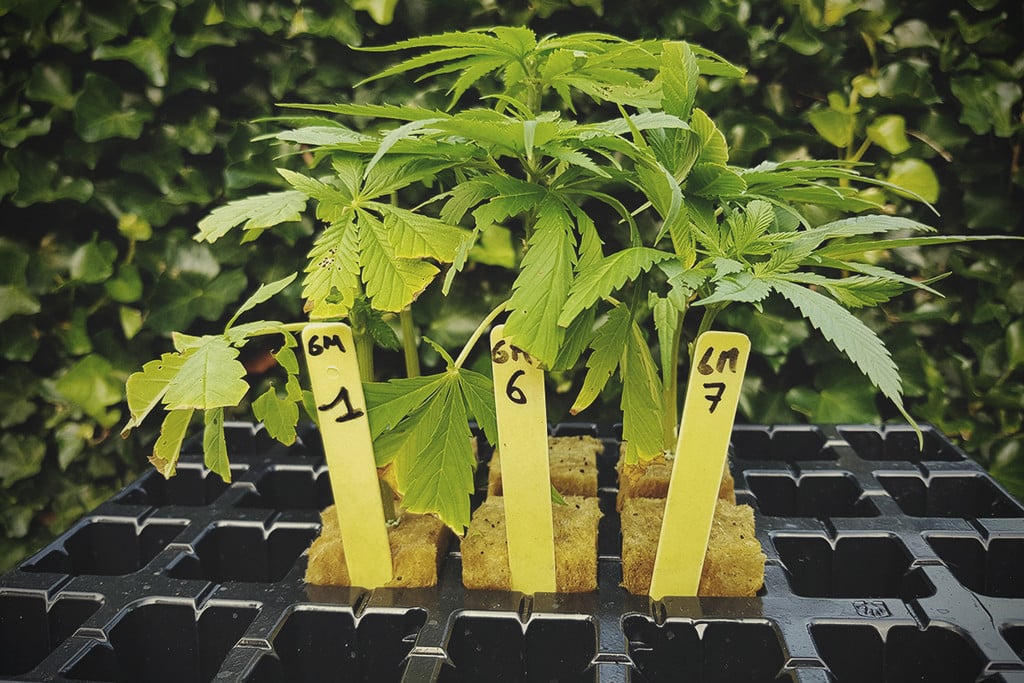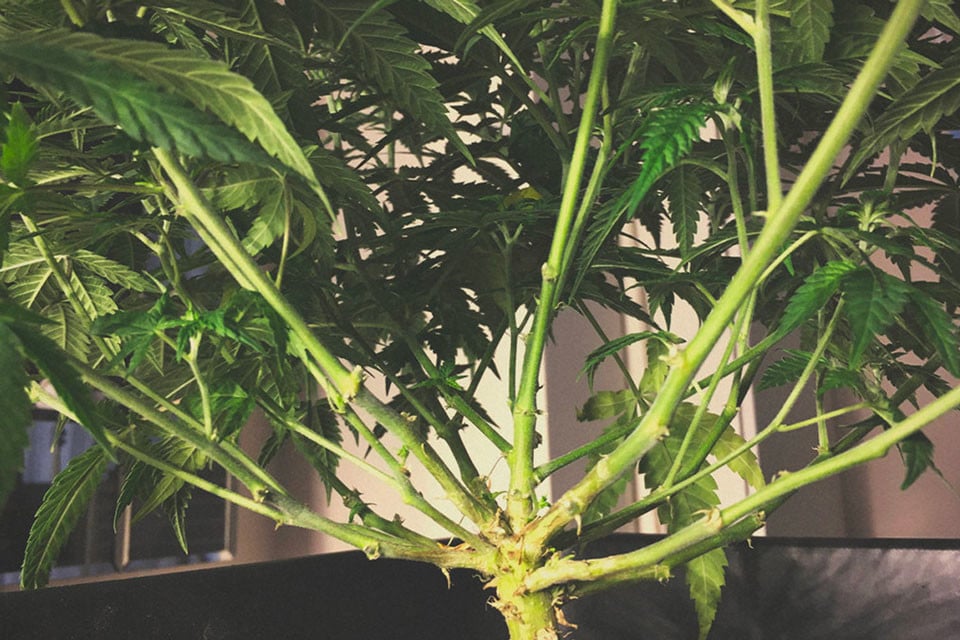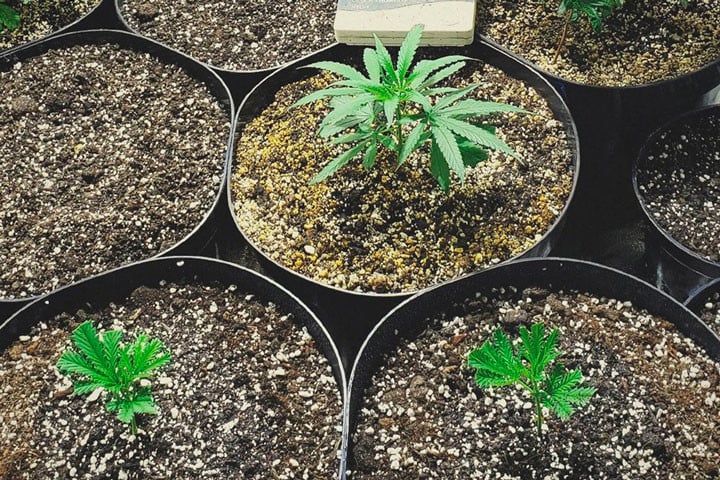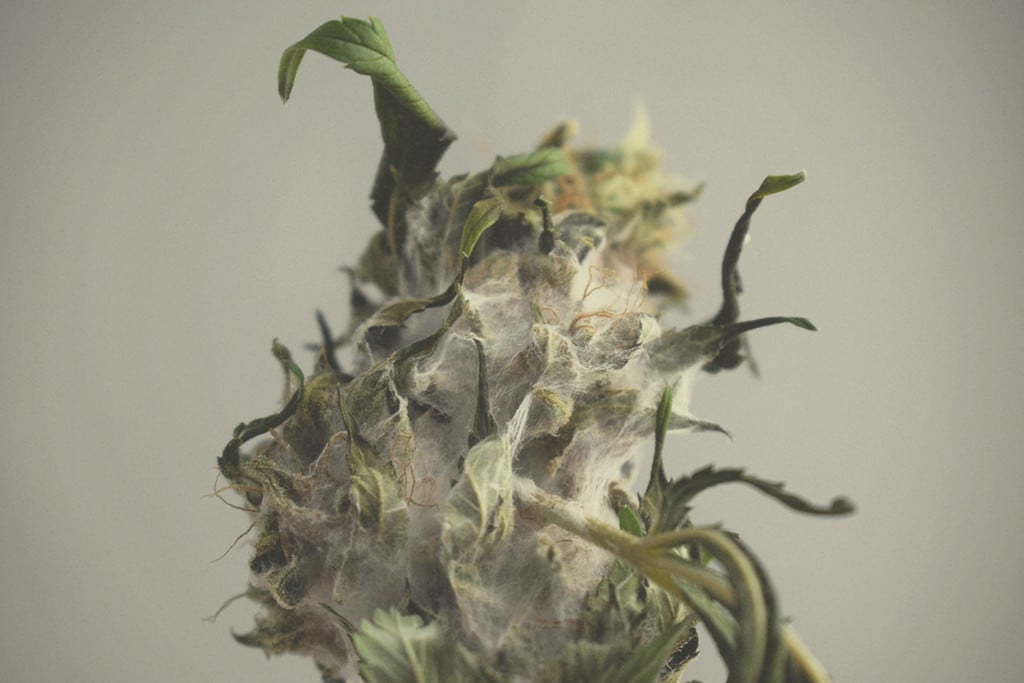.
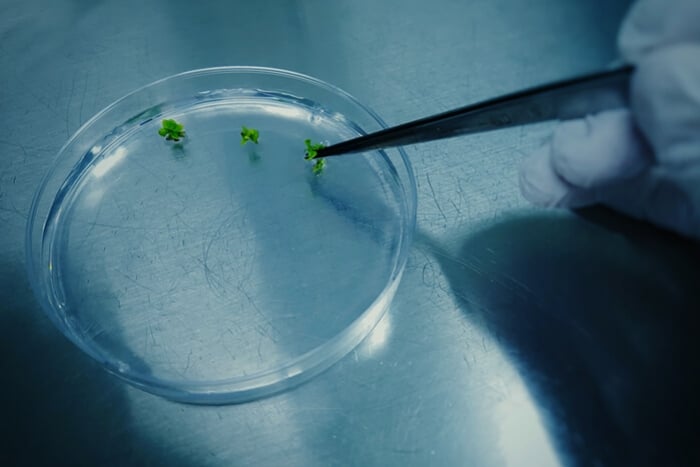
What Is Cannabis Tissue Culture Propagation?
You may have heard of it, but what exactly is tissue culture? We're not talking about an edgy sect dedicated to Kleenex products. Instead, we're about to take a deep dive into one of the most effective means of cloning cannabis plants. Learn how it works, why it's so important, and if tissue culture has a place in home growing operations.
Cannabis cultivation has come a long way in recent years. A far cry from clandestine growers raising illicit crops in their basements, tissue culture sees qualified lab technicians legally cloning premium genetics on a ginormous scale. But what exactly is tissue culture, how will it change the cannabis industry, and what does it mean for home growers? Find out the answers to all of these questions, and many more, below!
Contents:
- What is tissue culture propagation (micropropagation)?
- How cannabis tissue culture propagation works
- What are the advantages of tissue culture cloning in cannabis?
- What are the challenges of cannabis tissue culture?
- Can you carry out tissue culture at home?
- Cannabis micropropagation: an exciting prospect
What Is Tissue Culture Propagation (Micropropagation)?
Before we dive into the specifics of cannabis tissue culture, also known as micropropagation, it’ll help to establish a general understanding of the topic and technique. In biological research, tissue culture refers to a method of introducing the tissue of a plant to an artificial environment that allows the sample to thrive and function. In the context of cannabis cultivation, tissue culture essentially boils down to cloning.
In brief, tissue culture involves taking small samples of the original plant with the end goal of creating a new plant. Technicians sterilise the tissue samples and root them in a sterile, nutrient-rich growing medium in a controlled environment. Because these samples are only centimetres in size to begin with, labs can generate an enormous number of clones in a small amount of space.
Tissue culture differs from cloning using cannabis cuttings in numerous ways. Although both techniques aim to create a genetic copy of the plant from which the starting material was taken, micropropagation offers a range of unique advantages, including fewer instances of disease.
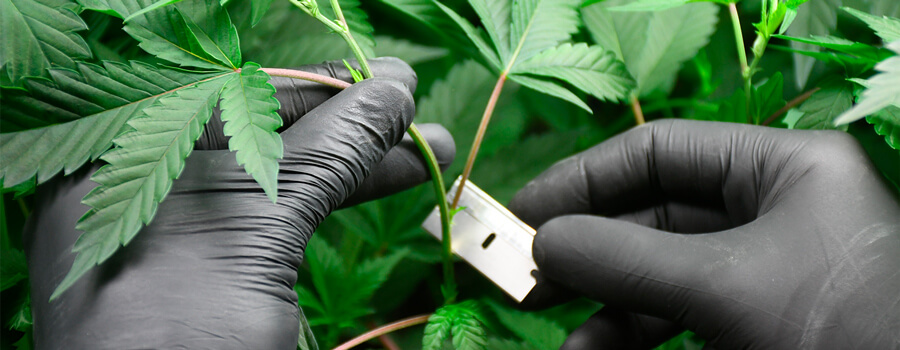
Tissue Culture Vs Cloning: Is It Better Than Cuttings?
The answer to this question depends on the individual and their circumstances. Taking cuttings is an excellent way to preserve the genetics of a mother plant. Perhaps you’ve found a phenotype with a structure or aroma that you love. Well, taking a cutting is an effective way to capture those traits. While time-tested, this technique does have flaws. It requires more space and can predispose plants to disease transmission.
In contrast, tissue culture requires much less space at scale. Moreover, the sterile working conditions required for this technique vastly reduce the odds of disease and pest transmission. Despite these benefits and others, micropropagation requires some investment and skill, and is mostly viewed as overkill for home growers who already have success using cuttings.
How Cannabis Tissue Culture Propagation Works
So, how exactly does the process of cannabis tissue culture unfold? It’s worth noting that there are variations in the technique and equipment that can make one tissue culture approach look very different to another. However, there are four key stages spanning across all methods of micropropagation. Check out each stage in detail below.
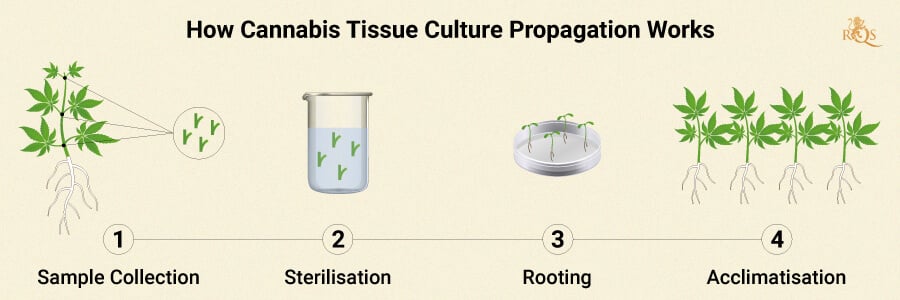
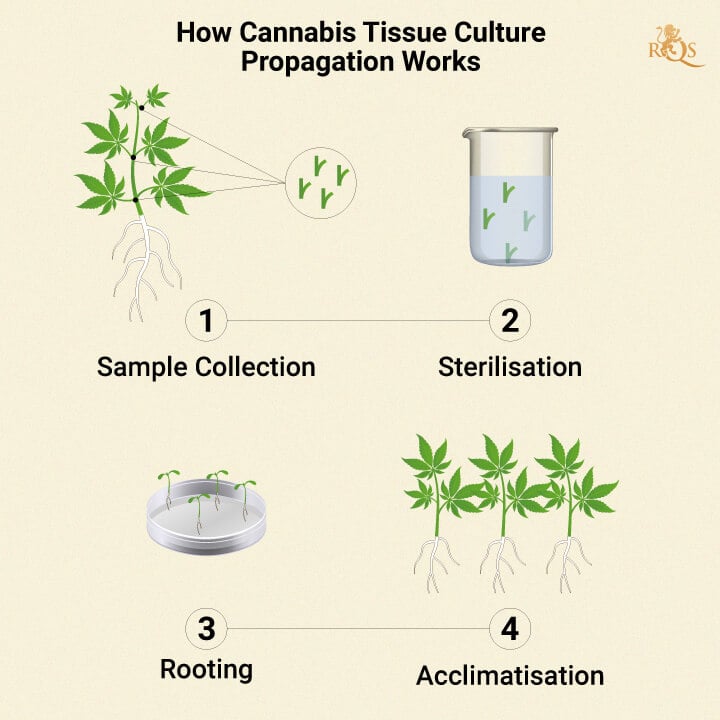
Sample Collection and Sterilisation
First things first, technicians need to collect a tissue sample from a donor plant. Donor specimens are selected based on a range of criteria, including cannabinoid content, terpene profile, and growth characteristics. Typically, lab workers take a sample of a leaf or shoot tip. These parts of a cannabis plant’s anatomy are host to living microbes, including pathogens and symbionts. For this reason, they are washed in an isopropyl solution to sterilise the tissue surface to prevent the growth of unwanted bacteria and fungi.
Shoot Proliferation
Once cleaned, technicians introduce samples to a sterile growing medium in vitro (in a glass container such as a test tube). This medium contains everything samples need to grow and root during the next stage of the process, including nutrients and plant hormones. They are typically placed in an illuminated environment with a temperature of 25°C and 60% relative humidity.
Rooting
Next up, the samples are left to develop more substantial root systems. During this time, the samples are exposed to necessary nutrients and phytohormones that allow them to develop healthy roots, which will help them to acclimate to their future growing environment.
Acclimatisation
Before growers transplant tissue culture samples to their final destination, they acclimatise them to a range of environmental variables. During the previous few weeks, the samples have been mollycoddled in constant growing conditions. Now, they need to be exposed to varying temperatures and other external factors to toughen them up in a similar way to “hardening off” vegetables prior to transplanting in spring.
What Are the Advantages of Tissue Culture Cloning in Cannabis?
Now that you’re aware of how tissue culture differs from taking cuttings, and the main stages of the process itself, we’re going to dive into the benefits of using micropropagation to create clones.
Requires Only a Small Amount of Plant Material
Marijuana tissue culture only requires a small amount of tissue per sample. On top of this, growers can use a range of plant parts to create samples, from buds to shoots. This means a single mother plant can be used to make a multitude of clones.
Doesn’t Require Much Space
The multiplication of a mother plant using tissue culture saves on space. The small size of each test tube means that growers can create starting material for countless plants while taking up only a small amount of room. This has important implications, especially in commercial operations.
Genetic Preservation
Much like cuttings, tissue culture enables growers and breeders to preserve the exact genetics of a specific specimen. Unlike growing out seeds from a desirable plant, cloning ensures the preservation of every trait, from phytochemical complex to structure, size, and color.
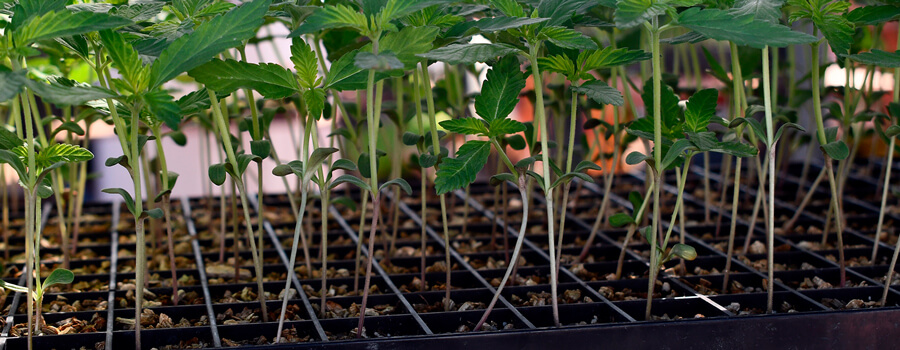
Mass Cloning
Micropropagation enables both commercial cultivators and keen home growers to develop a huge amount of clones within a confined space. Not only does this create a vast bank of genetics to preserve a particular mother plant, but it also has impressive commercial value.
Year-Round Production
Tissue culture is performed exclusively indoors given its climatic control and sterilisation requirements. This means that producers can continue to churn out clones all year round, whether for personal use or to generate sales.
Disease and Pest-Free Plants
The intricate sterilisation practices involved in weed tissue culture cloning almost completely eradicate the chances of pests and disease—factors that can seriously damage cloning operations that use cuttings.
Rapid Propagation
Much like traditional cloning using cuttings, tissue culture creates mature plants at a much faster rate than sowing seeds. This method also cuts away the time it takes to select desired phenotypes following germination when growing from seed.
Research and Development
Marijuana tissue culture has important implications in developing new genetics and learning about the phytochemical and morphological traits of select strains within hyper-controlled conditions. Large firms are destined to use this approach (many currently do) to develop new cultivars.
What Are the Challenges of Cannabis Tissue Culture?
Tissue culture and cloning have incredible potential for commercial operations and small-scale growers alike. However, everything has its downsides! Find out about the drawbacks of micropropagation below.
- Cost
- Setting up a proper tissue culture lab can quickly become expensive. The equipment required to start and scale up, including sterilisation facilities and glassware, comes at a cost.
- Expertise
- In the age of information, practically anyone can learn the ins and outs of micropropagation online. However, large companies need people who can prove that they know what they are doing, or the funds to train them in an official capacity.
- Labour Intensive
- Despite creating genetic copies of mother plants at speed, weed tissue culture requires incredible attention to detail, from vetting the traits of mother plants to sterilising and scouting the signs of disease and infestation.
- Maintaining a Sterile Setting
- The success of any tissue culture operation hinges on maintaining a sterile environment. This requires constant work and attention. Fail here, and you’ll lose a whole lot of time, work, and, potentially, money.
- Genetic Drift
- Marijuana tissue culture creates some incredibly consistent results. However, this technique isn’t completely bulletproof to the reality of genetic diversity. Even in such tightly controlled clonal populations, some degree of genetic drift can manifest over time, resulting in plants with slightly different traits.
Can You Carry Out Tissue Culture at Home?
Absolutely. While cannabis tissue culture might seem like a technique only suitable within high-tech labs, it’s possible to perform this method at home on a smaller scale.
If you’ve ever tried your hand at the cultivation of mushrooms, you’ll likely know your way around a still air box (SAB). These cost-effective DIY creations allow growers to foster relatively sterile working conditions. Purchase a few pieces of glassware and source a good growing medium, and you can launch a tissue culture project at home. Many houseplant fanatics use the approach to clone anything from monsteras to snake plants. You can even get your hands on a dedicated cannabis tissue culture kit, but these typically come at a relatively high cost.
Cannabis Micropropagation: An Exciting Prospect
Cannabis micropropagation puts the ingenuity of botany on full display! You can view the method as a more developed version of taking a cutting to clone a plant. Sure, most home growers simply don’t have the need for tissue culture. However, this method has already started to revolutionise commercial growing operations and the consumer cultivation market. Moreover, the more adventurous and obsessive home grower has made tissue culture work for them. Will you give this technique a go?


























